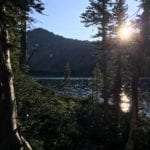Tools for Climate Justice are Tools for Social Justice

Do the best you can until you know better.
Then when you know better, do better.
-Dr. Maya Angelou
Here is what I know: hatred is heavier than love.
-Sarah Bellamy
Yesterday evening, we met with a group of people in a webinar about what the natural world has to show us about social justice. Specifically, how does nature teach anti-racism.
It will come as no surprise that there is a lot left to understand. At the same time, nature’s invitation is pretty direct. Be your nature – be in and of nature.
Gary’s book, Eight Master Lessons of Nature, shows eight of the vital and successful ways nature functions – ways of living that are as natural to us as to anything we see out in the world. But for humans, it’s become a matter of intentional reclamation.
Recent calls to join with our Black relatives – to see and reject the killing and ongoing harm and degradation of Black bodies – demand that we examine our identities and motives. Especially if we were born and raised white.
The natural world is the oldest consistently sustained system on the planet. It thrives from unquestioned interdependence. That interdependence depends in significant part on the variation – the diversity – in any given ecosystem. The natural world would simply not exist were it to engage in the systematic discrimination and, really, genocide that is right in our faces as a human species.
As we continue looking deeply into social ecologies (between us and within us), we see that any repair to the damage humans have brought to the planet requires the same commitment as any repair of the damage we bring to our Black relatives.
Pay attention with us. Consider what it takes to recover and live from your human nature. As the first two behaviors of Full Ecology suggest, now is the time to STOP. Really stop. To put everything down. And then, to ASK who you really are.
Below we’re including the resource list we sent to our webinar registrants after the meeting last evening. Use these.
And join us in our new Full Ecology Connection membership forum. Support the movement to build a community of inquiry and anti-racist action. See how climate justice is social justice. Together we’ll make for healthy change in ways none of us alone ever can or ever has.
RESOURCES
Implicit Bias Assessment.
This is a Harvard-based project that has been underway for decades, now. It does what its title suggests – gives you a measured description of the extent to which you think in biased ways that you may not recognize. It’s a public resource.
Implicit Bias Assessment
NYT links between racism and the environment.
RESOURCES from recent weeks.
AfroOutdoors.
A national nonprofit leading, cutting edge network that celebrates and inspires Black connections and leadership in nature. – https://outdoorafro.com/
Mary Annaise Heglar – journalist, thought leader.
Huffington Post article.
Sarah Bellamy – stage director, scholar
Paris Review article. Performing Whiteness
Resmaa Menakem – healer, author, trauma specialist.
Mr. Menakem offers powerful insights into the somatization of racism. The way racism is carried in bodies. Check his website. Here’s a place to start – a list of great anti-racist resources:
Kim Jones – author, filmmaker.
Listen to Kim Jones on looting. And check out her website.
Dr. Ayana Elizabeth Johnson, marine biologist & policy. expert.
Read Dr. Johnson’s recent WaPo OpEd. And check out her website.
Eight Master Lessons of Nature. By G. Ferguson.
You may recognize this, but we’re listing again here because of the essential guidance the natural world provides. Always.

Recent Comments